Polyolefins Petrochemicals PlasticPollution 08-07-2021 - Arhive
Polyolefins Petrochemicals PlasticPollution
Crude Oil Prices Trend
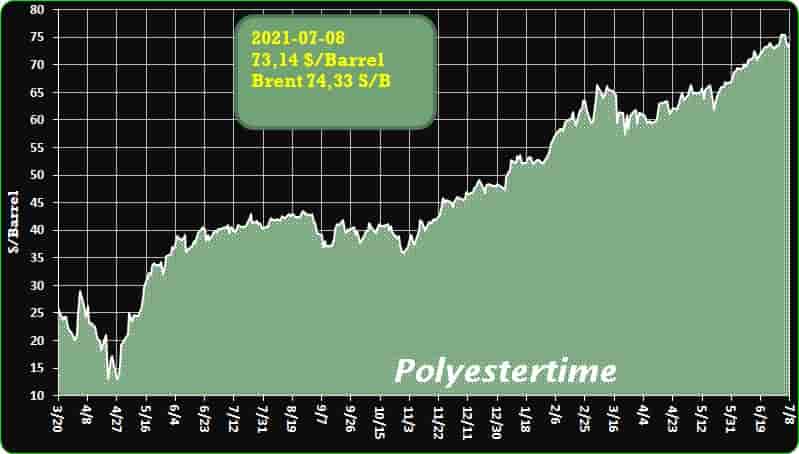
-Japanese firm Mitsubishi licenses bio polyester patent to Kuraray
Tokyo-headquartered Mitsubishi Chemical Corporation (MCC) has signed a licensing agreement with Japanese manufacturer of chemicals and fibres Kuraray for the related patent including MCC-owned basic patent on a biomass-based polyester. The products covered under the agreement include polyethylene terephthalate (PET), which uses renewable biomass resources.
PET has a variety of industrial applications including the manufacture of fibres. In contrast to conventional, petroleum-derived products, this biomass-based polyester can be expected to facilitate the reduction of greenhouse gas emissions, MCC and Kuraray said in a joint statement.
The patent owned by MCC is a substance patent for a biomass-based, high-quality polyester and is the basic patent required for business operations engaged in the manufacture or sale of this material. MCC has registered the patent in Japan, US, EU and China.

-Reducing Plastic Waste Will Require Fundamental Change in Culture
Plastic waste is considered one of the biggest environmental problems of our time. IASS researchers surveyed consumers in Germany about their use of plastic packaging. Their research reveals that fundamental changes in infrastructures and lifestyles, as well as cultural and economic transformation processes, are needed to make zero-waste shopping the norm.
96 percent of the German population consider it important to reduce packaging waste. Nevertheless, the private end consumption of packaging in Germany has increased continuously since 2009. At 3.2 million tons in 2018, the amount of plastic packaging waste generated by end consumers in Germany has more than doubled since 1997. At 228 kilograms per capita, packaging consumption in Germany was significantly higher than the European average of 174 kilos per capita.
“Recycling only treats the symptoms of the plastic crisis and does not address the root cause, waste generation itself. We wanted to learn more about the barriers that prevent individuals in Germany from reducing their everyday consumption of plastic packaging for food and beverages. For our research project, a total of 40 participants contributed to discussions in four focus groups,” explains Jasmin Wiefek, lead author of the study. In their analysis of the discussions, the researchers identified twelve barriers to reducing plastic packaging consumption:
Habits: The focus group participants mainly shop at supermarkets or discounters rather than markets or zero-waste shops. The discussion also revealed that most participants do not take their own bags or containers when they go grocery shopping. Processed and packaged foods are popular.
Lack of knowledge: The researchers observed that participants were often uncertain which types of packaging are more sustainable than others.
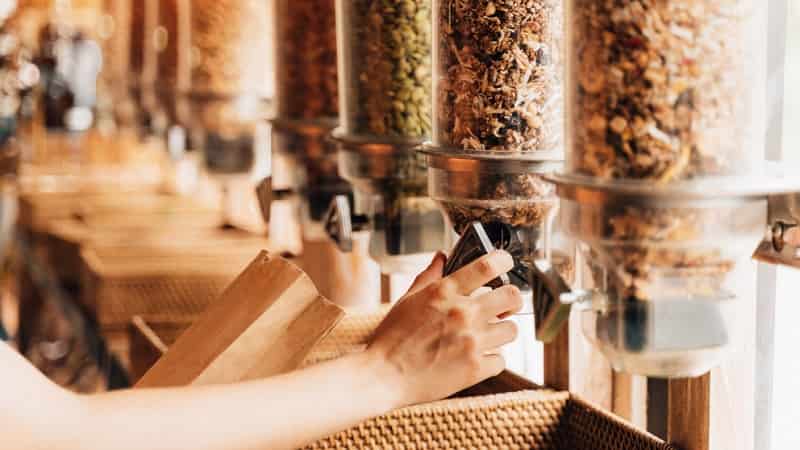
Leading PET value chain Trade Associations, namely Committee of PET Manufacturers Europe (CPME), Natural Mineral Waters Europe (NMWE), PETCORE Europe, Plastics Recyclers Europe (PRE) and UNESDA Soft Drinks Europe, recently addressed Executive Vice-President Frans Timmermans expressing concerns for the slow procedure on the authorisation of recycling processes for PET in food contact applications.
Regulation 282/2008 requires these authorizations, provided a positive evaluation was first issued by the European Food Safety Authority (EFSA). To date, at least 150 recycling processes for food-grade PET have already received EFSA positive opinions but are long awaiting the European Commission’s approval.
Considering the upcoming mandatory targets for recycled content in PET beverage bottles, under the Single Use Plastics and the Packaging and Packaging Waste Directives, the current delays in authorizations represent a serious bottleneck for the industry. This would impede the EU Green Deal ambitions, and thereby delay the shift from a policy proposal to a real Circular Economy for plastics.
Presently, more than 600,000 tonnes of installed capacity remain idle, which puts 35 European recycling plants in a perilous financial situation. Moreover, the Commission’s vision on the circularity of plastics and the pledged target of 10 Mt of recycled plastics to be used annually in final products in the EU is put in jeopardy with this delay. The food contact PET industry, a major contributor to the pledge, must be supported by a fully functional regulatory environment that provides legal certainty and fosters investments.
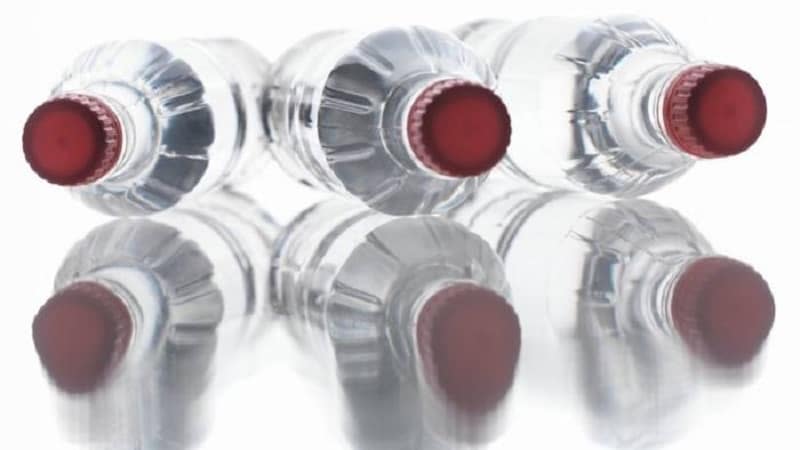
-Turkish Textile Company Elif Iplik Selects BRÜCKNER Stenter In Machine Comparison
The Turkish textile company Elif Iplik was founded in 1999. In the beginning, the focus was on the yarn production and the trade of textile raw material, later they added their own knitting mill. The Elif Iplik Group has continued to grow and develop and is now one of the pioneers of the Turkish textile industry.
In 2017, the company expanded by building its own dyeing and finishing facility. With daily production of about 40 tons of fabric required investment in many new machines from the start up. The German textile machinery manufacturer BRÜCKNER was in strong competition with local manufacturers from the very beginning. Due to the considerable investment volume, Elif Iplik decided for only two stenters by BRÜCKNER and for two further stenters by a local manufacturer.
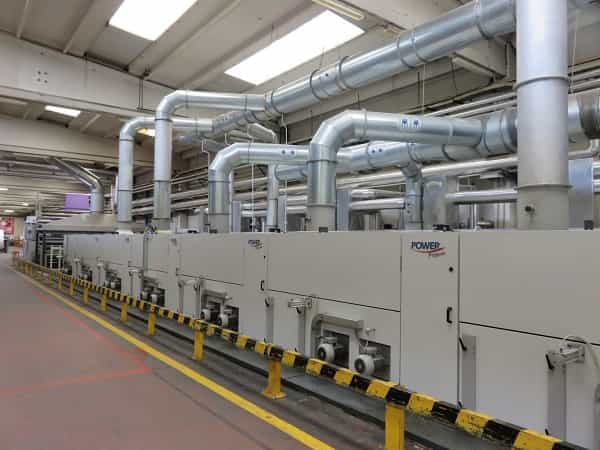
-Europe polyolefins prices to remain ‘very healthy’ despite predicted falls – Borealis CEO
Record high prices for polyolefins in Europe year to date are likely to start decreasing, following the lead of Asia, but they will remain “very healthy” for producers’ margins, according to the CEO at Austrian polyolefins and fertilizers major Borealis.
Thomas Gangl added that the divestment of the fertilizers division, which make up 20% of Borealis’ sales, is ongoing, hinting that conversations with potential buyers are happening.
The new CEO was appointed in April after the Austrian energy and petrochemicals major OMV upped its stake in Borealis to 75%, with the remaining 25% still owned by Abu Dhabi’s sovereign investment fund Mubadala. Gangl’spredecessor, Alfred Stern, was appointed OMV’s CEO in June.
The interview took place on 1 July after Borealis announced it had acquired a 10% stake in Belgium recycler Renasci; financial details were not disclosed.
Gangl said, however, the further announcements in this sphere will be made in due course to show how Borealis plans to achieve its target of producing 350,000 tonnes/year of recycled polyolefins by 2025, more than tripling its current output.
PETCHEMS MARGINS PARTY OVER?
Not quite. Manufacturing PMI indices for June in both the eurozone and the UK showed again multi-year highs, and optimistic sentiment on the back of healthy order books is also propping up industrial employment.
The whole economic picture, however, would need to consider the dominant services sectors, which make up around 80-85% of the European economy. Many of these are consumer-facing and have been battered by restrictions to mobility to contain the pandemic.

-BEWI invests in advanced recycling technology
BEWI, a leading provider of packaging, components, and insulation solutions, has invested in Polystyvert Inc., for development and commercialisation of dissolution technology for recycling of expanded polystyrene (EPS).
Polystyvert Inc. is an innovative company focusing on circular economy for styrenic plastics through a dissolution recycling process. The company is based in Montreal in Canada, where it has a demo-site at which proof of concept studies for the technology has been successfully completed. Now, the company is planning to set up a full-scale project, also in Montreal.
The dissolution technology allows for more contaminated feedstock to be used in the recycling process, compared to the more traditional mechanical recycling used by BEWI today. The technology could therefore be complementary to the current, resulting in increased volumes of recycled materials.
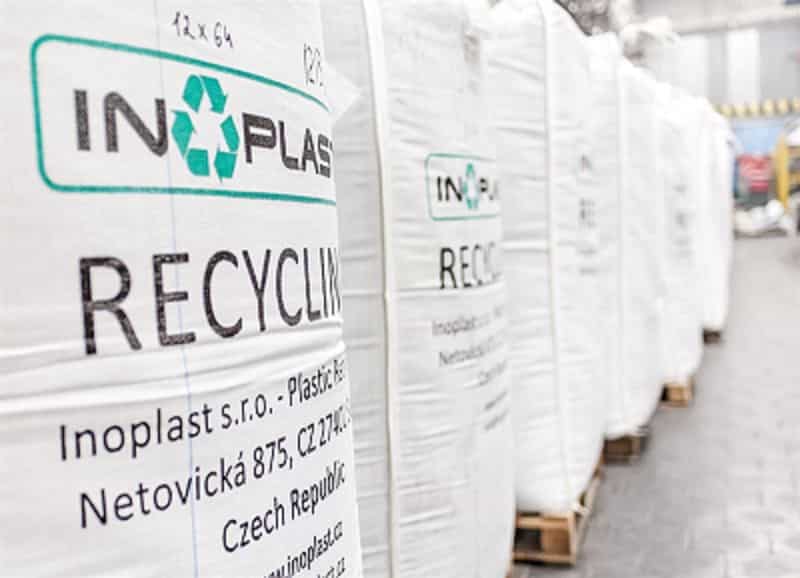
-Swimwear brands attracted to Hyosung’s fibre solutions
Sustainable and performance solutions provide inspiration for new opportunities.
With the future of our planet top of mind, consumers are increasingly more eco-conscious, and swim brands are taking notice, and action, by adding more sustainable options to their swimwear collections.
Two sustainable fibre solutions swimwear brands have recently adopted Hyosung’s 100% recycled Mipan regen nylon and regen polyester made from reclaimed waste. Both fibres are recognized and certified by the Global Recycled Standard (GRS) of the Control Union in the Netherlands for their energy saving benefits, which include saving valuable resources from being removed from the earth.
We are experiencing tremendous interest in our 100% recycled, GRS-certified Mipan regen nylon and regen polyester
O’Neill swimwear recently developed a line of women’s swimwear made with Hyosung’s Mipan regen nylon as part of its new O’Neill Blue sustainable collection, honouring its founder, Jack O’Neill’s, commitment to protect our oceans.

-Tondgooyan Petrochem Company to Raise Output
The production of different grades of polyethylene terephthalate (PET) products at Shahid Tondgooyan Petrochemical Company in Khuzestan Province exceeded 106,000 tons in the third month of the current Iranian year (May 22-June 21), bringing the cumulative production of the first three months of the year to 290,000 tons.
The raise in production is the result of the development programs at the company, which are aimed at diversifying the products and setting a new record in the company’s output, the Oil Ministry’s news agency Shana reported.
With the completion of several projects, the company set an annual record of 1.1 million tons of products in the last fiscal year (March 2020-21), which was unprecedented in the company’s history.
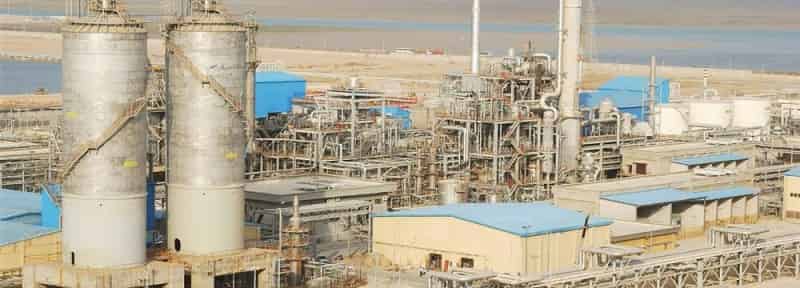
-Chevron Phillips Chemical Joins Cyclyx as Founding Member
International, a consortium-based feedstock management company with a mission to help increase the recycling rates of post-use plastic from 10% to 90%, announced today that Chevron Phillips Chemical (CPChem) has joined Cyclyx as a founding member.
CPChem is a leading chemical company and at the forefront of cultivating a circular economy for plastics. The company has announced plans for an annual production volume of 1 billion pounds of its ISCC PLUS certified Marlex® Anew™ Circular Polyethylene by 2030.
CPChem will actively contribute to Cyclyx’s ongoing efforts to build and enhance its programs by having Dr. Ron Abbott, CPChem’s sustainability technology manager, serve on the Cyclyx executive advisory board.
“I am impressed with the approach Cyclyx has initiated to increase recycling rates of plastic, and I look forward to collaborating with this expert executive advisory board,” said Abbott. “CPChem is working to create sustainable solutions, and we believe joining Cyclyx as a founding member will expand our capacity to produce and deliver certified circular products for years to come.”
As a founding member of the consortium, CPChem joins a growing list of of companies helping to foster a more sustainable future for plastics. Cyclyx provides third-party audited, circular, end-of-life pathways for post-use plastic throughout the value-chain and combines technical expertise with leading-edge technology and data analytics to help to increase plastic recycling rates. Members of Cyclyx enjoy access to innovative tools like chemical characterization of plastics and predictive modelling of feedstock sources to product pathways, custom feedstock recipes, and customized supply chains, which are designed to elevate a more circular economy for plastics.
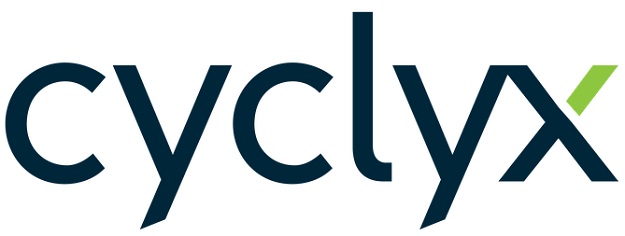
-Could Iran Raise Its Oil Production To 6 Million Bpd?
The unsuccessful attempts by OPEC+ to reach a deal on output cuts increase the risk of creating a supply squeeze in an already tight market , which could potentially send oil prices sharply higher. Consumers are beginning to keenly feel the effects of higher oil prices, with 4th of July gasoline prices in the U.S. set to be the highest for the holiday weekend in seven years while prices are forecast to rise even higher later in the summer.
The latest OPEC+ spat has shifted focus from yet another oil price wildcard: Iran official return to the oil markets.
After a three-year layoff, Iran could be poised to officially rejoin the ranks of oil exporters–maybe as early as 2021–if Tehran and Washington are able to strike a new nuclear deal and Iran returns to the Joint Comprehensive Plan of Action (JCPOA).
How much could a new nuclear deal boost Iran’s oil production? More importantly, will investors start flocking to a post-sanctions Iran?
After all, Iran’s oil minister Bijan Namdar Zanganeh is on record saying that his biggest dream has always been to increase Iran’s oil output to six million barrels per day; earn $2 trillion through oil exports over the next two decades and use the income to invest in the country’s development.

Polyolefins Petrochemicals PlasticPollution
